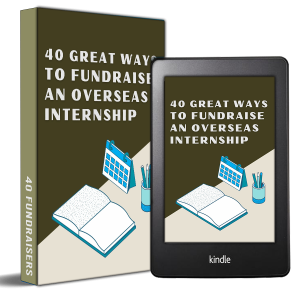10 Problems with lazy travel writing
In this article, Peter Greenberg, internationally acclaimed journalist and Travel Editor at CBS News, shares his thoughts on the shortcomings of many travel stories being published today. His advice not only applies to travel writing, but to any kind of expression in the written word – whether you like to blog, write for your college newspaper, or just want to share a few thoughts on facebook – consider his thoughts before hitting the publish button.
The 10 Problems I Have with Lazy Travel Writing
I don’t call myself a travel writer… I’m a journalist. And that’s because the rules of good journalism apply to all aspects of writing, whether it’s for magazines, managing a company blog, or editing a newsletter. Follow my top 10 tips on how to avoid lazy writing.
1. Most Travel Writers Are Not Journalists
If I can’t tell the difference between your story and a press release, then you’re not reporting—you’re promoting. A good story leads with the facts that matter, while amateur memoirists, comedians and novelists lead with their perspectives and feelings. Of course there’s always a time and a place for sharing what you did on your summer vacation or regurgitating your exact tour bus itinerary, but usually it’s not when I’m looking to learn about what really matters… the process of travel.
2. Most of Them Aren’t Good Writers
If I have to sift through a thesaurus full of adjectives just to get to the point, that’s one destination I’m not going to visit. Just because it was a “stunning,” “unique,” “breath taking” experience for you doesn’t mean it will be one for me. In fact, you’ve told me nothing about the traveling experience so far, except that your destination is highly susceptible to cliché.
3. They Are More Focused on the Fact They Got to Travel Than Why They Are Traveling
After a few years in the travel world, you’ve probably been on a press trip or two. Bravo! Congratulations on being selected. You know what that means: A publicist is counting on you to write the story from the narrative script they have, based on the agenda they want you to follow.
Don’t repeat the prescribed pitch. Go deeper into what the travel experience either provides or challenges. It has been argued that travel and tourism is the most powerful tool for breaking down barriers and building understanding. So travel writing needs to be the most powerful tool for breaking down hyperbole and fluff.
4. They Are More Focused on the Destination Than the Experience
Do I really want to read another piece about Astounding Amsterdam, Lovely London, Beautiful Brazil? Gag me. Rarely does a piece that just sings the majesty of a destination actually convince me to go there. It’s just typically lazy travel writing. But an article that takes me into a bazaar and describes how a shopkeeper haggled with me for 40 minutes before offering up tea, his life story and the best place to eat in town? Book me on the next flight out to that city.
5. Most of the Pieces Written Are Based on Price, Not Value—or Cost, Not Worth
When you focus on what the experience of travel provides, the costs are put in perspective, and then you’re talking value and not just price. Thanks to the Internet, you can find a discounted hotel room at a cookie-cutter resort. But what is that experience worth? Nothing! However, being able to escape your world and pushing your own comfort level? With all due respect to MasterCard commercials… that’s priceless.
Download FREE eBook featuring 40 proven fundraising techniques to finance your next overseas experiential adventure
6. So Much of Travel Writing Reads Like Bad Brochures
Want one simple way to spot lazy travel writing and bad writing in general? Look for an overwhelming emphasis on words that end in “st.” Best, most, finest, greatest, loveliest. How about please, spare me, in the WORST (another st word) way.
Why no “st words?” Unless you’re talking about the airline with the most outrageous ancillary fees, these words are just expressing over-the-top and unrealistic descriptions and not quantifiable facts.
7. Most Travel Writing is Obsessed with Product, Not Process
When it comes to travel, I’ve always believed if you can appreciate the process, that’s the moment when you can value the product. Why? Product-driven writing (and not just on travel) only really applies to you when the product is relevant. But process-driven writing offers lessons that will stay. Don’t tell me why this hotel matters, tell me how this hotel was made, what are they doing to improve the travel experience, or allowing us to partner with them in being more responsible travellers. And then, you can enlighten me on how I can get the best rate.
8. Tell Me Something I Don’t Know
While I may not be immediately drawn to a piece about the Eiffel Tower, I am attracted to a piece that tells me a secret or special place or time to see it. Or tell me about a truly local experience—like how every Friday night, Pari Roller organizes Rollerblading events throughout the city, including a massive crowd zipping around the Eiffel Tower.
9. Introduce Me to Someone I Don’t Know, But Should
I’d much rather read an interesting piece on a fascinating hotel maid who knows the city better than anyone and can take me to her favorite neighbourhoods NOT in the guidebooks, than a piece about what a celebrity thinks about a place because he/she just shot a movie there (and never saw that city anyway).
10. Stop with the Lists!
The 10 places to renew your vows, the five places to haunt you at Halloween, the five thrill rides of a lifetime, and while I’m at it, I’ll point the finger at me—the 10 problems I have with most travel writing, because it’s lazy travel writing. OK, I’m done now.
Join the Africa Media Environmental Journalism and Travel Writing Internship to gain hands – on experience in a journalism career.
Kickstart your wildlife media career!
Find your perfect wildlife media speciality program




